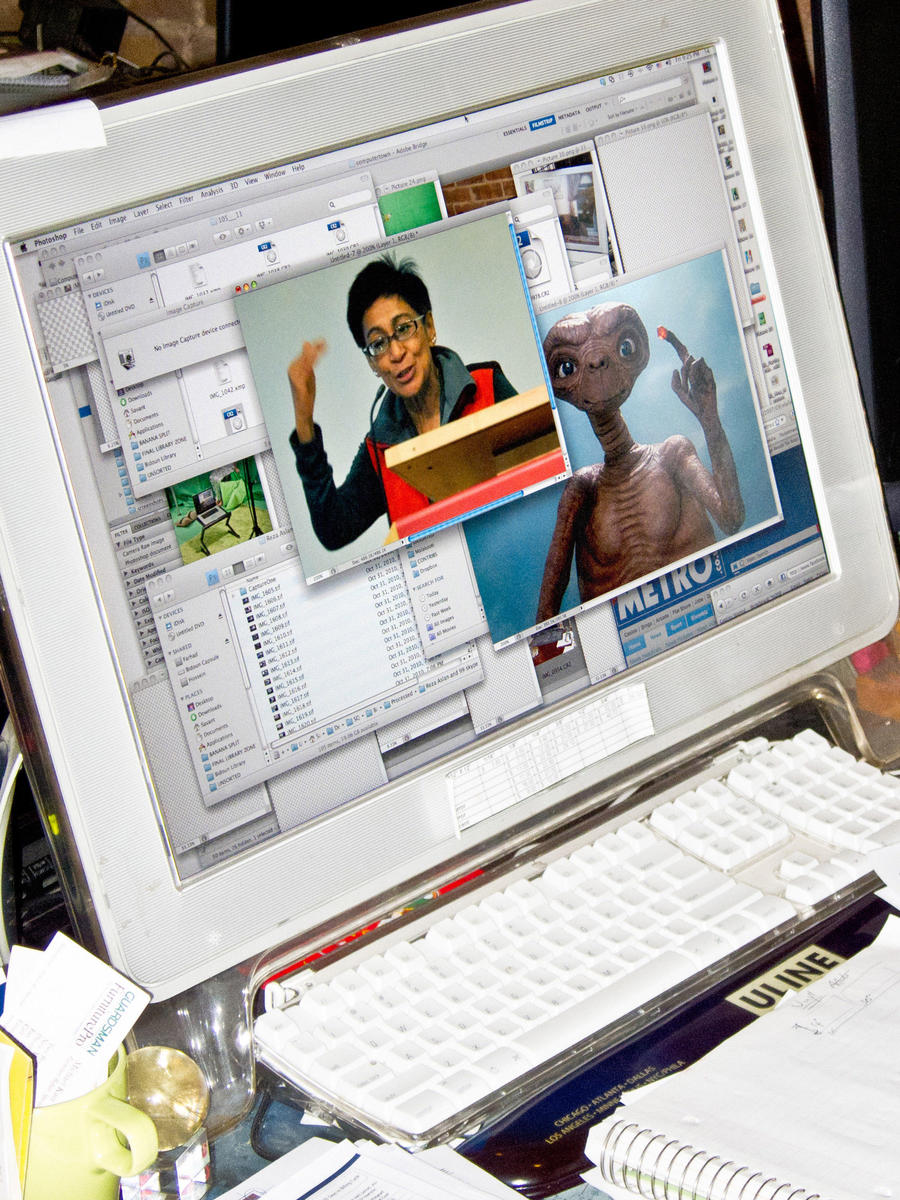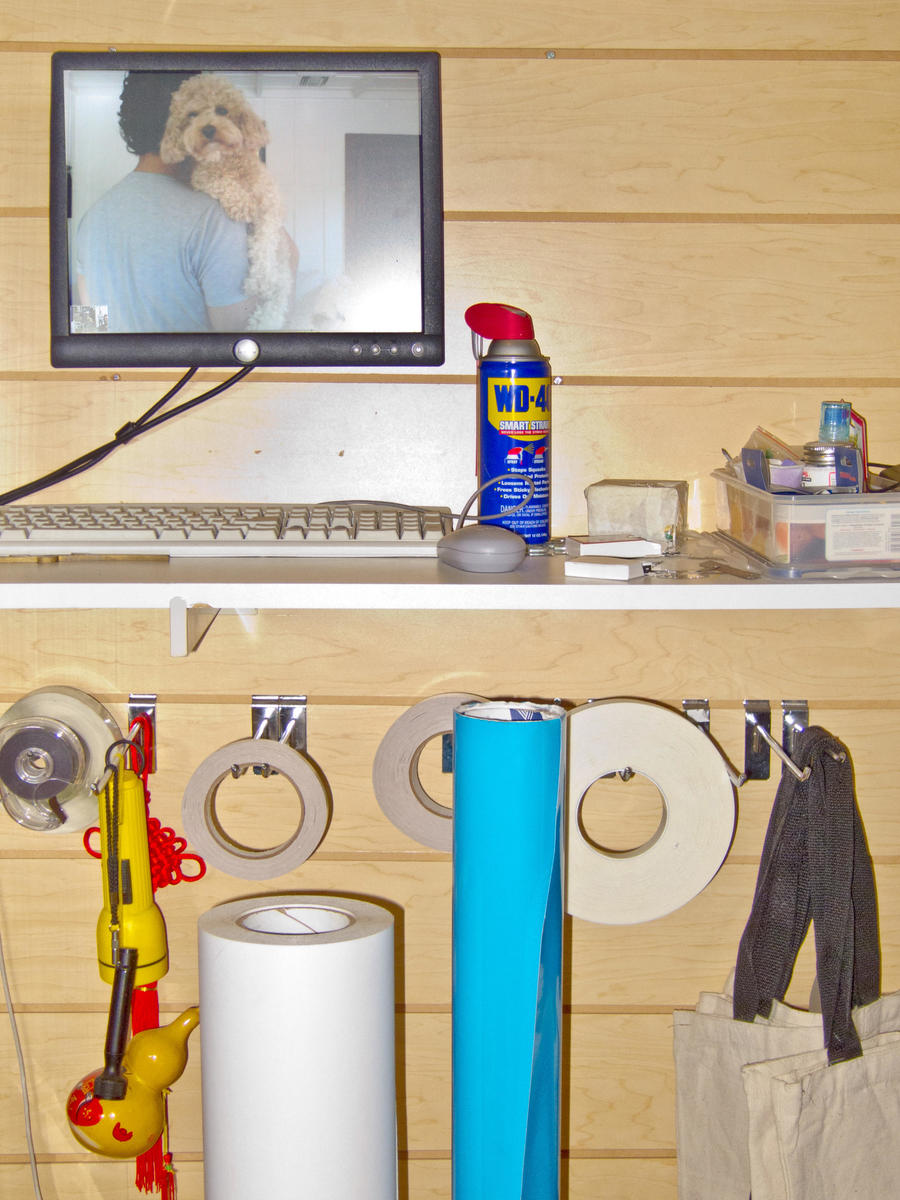
Dr Mazlan Othman is the head of the United Nation’s Office for Outer Space Affairs (the unbelievably fun to pronounce UNOOSA). The fifty-nine-year-old, who has the distinction of being Malaysia’s first astrophysicist, looks a bit like the result of an encounter between E.T. and a more subdued Yoko Ono. She has the former’s kindly mien, the latter’s enigmatic smile and cropped bob. And yet, Dr. Mazlan is remarkably down-to-earth for someone who sounds the stratosphere for a living. Petite and professional, she combines a scientist’s contagious enthusiasm with a bureaucrat’s penchant for acronyms and dark, business-casual suits. When the rumor spread that this soft-spoken mother of two was to be our planet’s first ambassador to outer space, UFO-spotting zealots rapidly adopted her as their spearhead and muse. But Mazlan’s quietly luminous demeanor is a far cry from the eldritch stereotypes bandied about by sci-fi flicks or Simpsons episodes; somewhat disappointingly, she has none of the hubris of test tube–toting Bond villains, not a whiff of the bumbling idiot savant. To borrow an image from her field, she’s more of a comet, doughtily blazing her faint trail through the night sky, than an earth-shattering asteroid.
Mazlan grew up in the hilly, tin-mining town of Seremban, in a province known for practicing the ancient Malay tradition of adat perpatih, whereby women are granted a higher social status than men. In 1957, the same year Malaya heroically wrested political sovereignty from the British, the Soviets launched Sputnik. Mazlan was six years old. When Neil Armstrong made his great leap for mankind, she was eighteen, a promising math enthusiast on her way out of boarding school. Still, the repercussions of the space race were only dimly felt in the fledgling state, let alone at the elite Tunku Kurshiah College. Not that Malaysia wasn’t intimately caught up in the throes of the Cold War — it was partly at the hands of the Communist-led Malayan People’s Liberation Army that the country achieved independence — but the country’s new leaders were struggling to rebuild an industry and an infrastructure that years of war, emergency measures, and Chinese economic domination had diminished. The antics of far-flung astronauts and their cosmonaut rivals must have seemed all but irrelevant to Malaysians. Still, Mazlan took a keen interest in physics and pursued the subject at the University of Otago in New Zealand, against her family’s wishes. She went on to become the first woman to receive a PhD in physics from that institution.
By the time Mazlan returned home in the early 1980s, Malaysia was ruled by the autocratic and intellectually minded Mahathir bin Mohamad, under whose iron fist the country morphed into a major industrial power. A firm believer in the capacity of science and education to spur economic growth, he took notice of our heroine, who had by now created a curriculum in astrophysics at the national university. Seconding her efforts to build public awareness about cosmic matters, the prime minister (who once famously declared that “when one is short, one should stand on a box to get a better view”) appointed her to oversee the construction of Planetarium Negara, a brilliant blue-domed structure — half spaceship, half mosque — perched atop a hill in Kuala Lumpur’s Lake Gardens. The public, hitherto unacquainted with the universe and initially a little daunted by Mazlan’s forward-looking initiatives, soon embraced the planetarium, which now serves as both a tourist attraction and showcase of Malaysia’s scientific and technological prowess. Parents and schoolteachers marveled as rowdy tots fell miraculously silent before the multimedia likes of “Dawn of the Space Age,” “Passport to the Universe,” and “Fly Me to the Moon!” Outside, the lush, palm-lined Observatory Park features various ancient Chinese and Indian astronomical instruments, a fourteen-inch telescope and, somewhat incongruously, a replica of Stonehenge.
Mazlan’s techno-Moorish brainchild was only one project among many in her campaign to rouse her country-folk from their science apathy. But her own great leap came in 1999, when Kofi Annan, then secretary-general of the UN, appointed her to head the organization’s Office for Outer Space Affairs. Created in the late 1950s, the mostly unknown UN body is housed in a faceless tower — not in Seoul, Singapore, or Seattle, as one might expect, but in old-world Vienna, more commonly associated with Baroque cathedrals and portly baritones than with cutting-edge research into the paranormal. The UN being what it is, one surmises that the agency’s activities must involve red tape rather than little green men, yet over the years it has retained an unassailable core of weirdness. Sure, Mazlan prefers the adjective “supra-earth” to “extraterrestrial” and likes to stress UNOOSA’s focus on space law, asteroid impact prevention, and other such reassuringly plodding topics. Yet her participation in a recent conference advocating a “coordinated response” to extraterrestrial life (one panel debate was entitled “Calling E.T., or not even answering the phone?”) gave one the impression that the UN had merged with Monty Python for the occasion.
In 2002, Mazlan returned home once more to found the Malaysian National Space Agency, which she headed for five years. The most salient success of her tenure there was the launch of Malaysia’s first astronaut, a young surgeon and part-time model named Sheikh Muszaphar Shukor. At thirty-five-years-old, he boarded the Russian Soyuz rocket with a mission to study the growth of liver cancer cells at the International Space Station.
Although Sheikh Muszaphar was the ninth Muslim to venture into space (the first was a Saudi prince aboard an American shuttle), he was the first to attempt it during Ramadan, a situation that gave rise to all manner of questions that Islamic law simply could not answer, no matter how hard one looked: how to pray toward Mecca while orbiting the Earth sixteen times a day; how to kneel in zero gravity; how to fast in space. Coming to his aid, the National Fatwa Council collected the views of muftis and scientists on the subject and produced an eighteen-page guidebook for Muslims in space, the general thrust of which was to do what one could, making up for any lapses once back on solid ground. For most issues, the guidelines observe a sort of lax common sense: If you can’t stand up, sit down. If you can’t sit, lie on the floor. If you can’t manage any of those, indicate the change of postures with your eyelid, or just imagine the sequence of positions. As to ablutions: if scarcity of water precludes one from washing properly, symbolic purity can be obtained by striking both hands on the surface of a mirror. Our dashing cosmonaut proved pithier than the scholars, asserting, “Islam is lenient.” But rituals do not seem to have posed too great a challenge to Sheikh Muszaphar, who confessed, “I did morning prayer on the launch tower — it was one of the most beautiful days of my life.” Indeed, he even threw an Eid party on the space station, with beef satay and cookies for the kafirs.
When Sheikh Muszaphar landed in Kazakhstan eleven days later, he was already a national hero. Malaysia had contracted space fever. Lionized by the younger generation (a cursory YouTube search reveals dozens of video tributes), he became a role model for tech-savvy students, showing them that science could be a career. Mazlan was enthusiastic: “Even those who do not care about space still care about the country,” she noted, and by putting a Malay in space, “we have achieved international recognition.”
When word got out earlier this year that the UN had appointed her to be Earth’s first plenipotentiary to aliens, that recognition soared. If an alien should utter those fateful words, “Take me to your leader,” we’d know just who to call! Alas, the report was quickly exposed as a hoax. Or was it? “It sounds really cool,” Mazlan said, “but I have to deny it.” Are they twisting your arm, Mazlan? Sounds like a non-denial denial to us.
